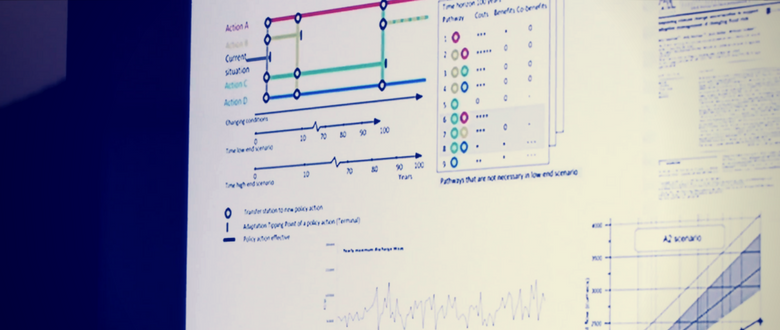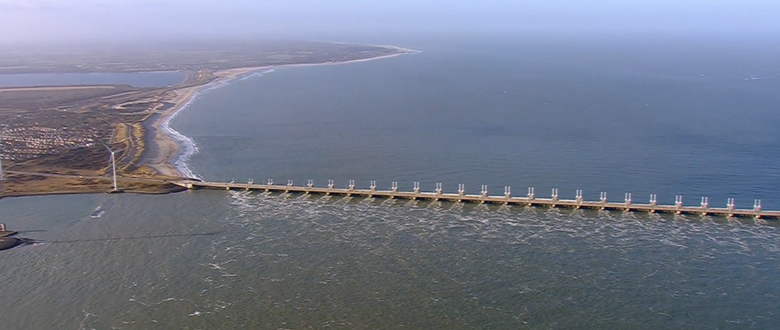Lempert, R.J. and Turner, S. (2020), Engaging Multiple Worldviews With Quantitative Decision Support: A Robust Decision‐Making Demonstration Using the Lake Model. Risk Analysis. doi:10.1111/risa.13579 Abstract:Many of today’s most pressing policy challenges are usefully characterized as wicked problems. With contested framings parties to a decision disagree not only on potential solutions,…
Eight grand challenges in socio-environmental systems modeling
Elsawah, S., Filatova, T., Jakeman, A. J., Kettner, A. J., Zellner, M. L., Athanasiadis, I. N., Hamilton, S. H., Axtell, R. L., Brown, D. G., Gilligan, J. M., Janssen, M. A., Robinson, D. T., Rozenberg, J., Ullah, I. I. T., & Lade, S. J. (2020). Eight grand challenges in socio-environmental…
Risk Analysis under Structural Uncertainty (2018)
Sven Ove Hansson, “Risk analysis under structural uncertainty”, pp. 241-264 in Terje Aven and Enrico Zio, Knowledge in Risk Assessment and Management, Wiley 2018. Abstract: Standard decision theory is devoted to problems in which we have a well-defined decision to make. We are assumed to know what we are going to…
Designing a monitoring system to detect signals to adapt to uncertain climate change
Haasnoot, M., van ’t Klooster, S. & van Alphen, J. Designing a monitoring system to detect signals to adapt to uncertain climate change. Glob. Environ. Chang. 52, 273–285 (2018). https://doi.org/10.1016/j.gloenvcha.2018.08.003 Adaptive plans aim to anticipate uncertain future changes by combining low-regret short-term actions with long-term options to adapt, if necessary. Monitoring…
Scenario techniques for energy and environmental research: An overview of recent developments to broaden the capacity to deal with complexity and uncertainty (2017)
Scenario techniques are a teeming field in energy and environmental research and decision making. This Thematic Issue (TI) highlights quantitative (computational) methods that improve the development and use of scenarios for dealing with the dual challenge of complexity and (deep) uncertainty. The TI gathers 13 articles that describe methodological innovations…
Adaptation pathways in planning for uncertain climate change: Applications in Portugal, the Czech Republic and the Netherlands 2017

Mark Zandvoort, Inês S. Campos, André Vizinho, Gil Penha-Lopes, Eliška Krkoška Lorencová, Rutger van der Brugge, Maarten J. van der Vlist, Adri van den Brink, Ad B.M. Jeuken, Adaptation pathways in planning for uncertain climate change: Applications in Portugal, the Czech Republic and the Netherlands, Environmental Science & Policy, Volume…
Applying Principles of Uncertainty within Coastal Hazard Assessments to Better Support Coastal Adaptation (2017)

Stephens, S.A.; Bell, R.G.: Lawrence, J. (2017). Applying principles of uncertainty within coastal hazard assessments to better support coastal adaptation. Journal of Marine Science and Engineering 5(3): 40; doi:10.3390/jmse5030040 http://www.mdpi.com/2077-1312/5/3/40 Abstract: Coastal hazards result from erosion of the shore, or flooding of low-elevation land when storm surges combine with high…
A climate stress test of Los Angeles’ water quality plans (2017)

Tariq, A., Lempert, R.J., Riverson, J. et al., “A climate stress test of Los Angeles’ water quality plans,” Climatic Change (2017) 144: 625. https://link.springer.com/article/10.1007/s10584-017-2062-5 A climate stress test of Los Angeles’ water quality plans 2017 Abstract Climate change can significantly affect water quality, in addition contributing non-stationarity and deep uncertainty…
Does a better model yield a better argument? An info-gap analysis (2017)

Yakov Ben-Haim, Does a better model yield a better argument? An info-gap analysis, Proceedings of the Royal Society, A. 5 April 2017 http://rspa.royalsocietypublishing.org/content/473/2200/20160890 Abstract: Theories, models, and computations underlie reasoned argumentation in many areas. The possibility of error in these arguments, though of low probability, may be highly significant when…
A review of methodologies applied in Australian practice to evaluate long-term coastal adaptation options (2017)

Ramm TD, White CJ, Chan A, Watson CS (2017). A review of decision analysis methods used in long-term coastal adaptation studies in Australia. Climate Risk Management. DOI https://dx.doi.org/10.1016/j.crm.2017.06.005 Rising sea levels have the potential to alter coastal flooding regimes around the world and local governments are beginning to consider how to manage uncertain…